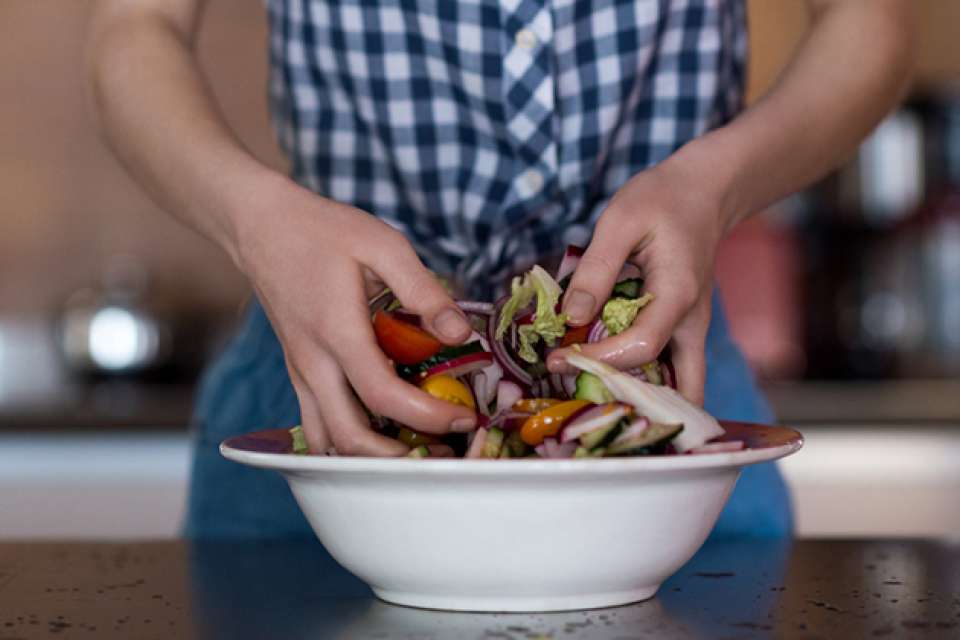The Gut-Brain Axis: How Bacteria in Your Belly Are Messing With Your Mind

You try to eat a balanced diet, move your body often and get enough sleep, all in the name of good health. But what if we told you that it’s not really you who is in control—but tiny organisms that control your body’s functions?
Each of us coexist with more than 100 trillion microbes, mostly bacteria, that live on us and within us, shares Will DePaolo, Ph.D., director of the UW Medicine Center for Microbiome Sciences & Therapeutics.
“For every human cell there’s that same number of bacteria,” says DePaolo.
Together, these microbes make up the human microbiome. And each part of you, like your skin, bodily fluids, lungs and gastrointestinal tracts, have their own vastly different community of bacteria, known as a microbiota. Scientists like DePaolo have been particularly interested in studying the gut microbiota because of the links they’re uncovering between the gut and the immune system, brain and behavior.
Learning more about the intricate connection between the gut and the brain—or the gut-brain axis—is helping researchers understand how what you eat and think can affect how you feel—and what you can do about it.
The Conversation: How Your Gut Talks to Your Brain
As you go about your daily life, you’re having little conversations with yourself all day long. But it’s not just the self-chatter that’s going on in your head. Your belly and your brain talk to one another constantly—like when it’s time for a snack.
“The microbiome is going to send signals saying we should be eating,” says DePaolo. “I’ve heard us talked about as walking sacks of bacteria. They’re telling us when we’re hungry by sending signals to the brain. Leptin, a hormone associated with hunger and satiation, is influenced by the microbiome as well.”
The gut-brain axis facilitates this conversation, explains DePaolo. Neurotransmitters, or chemical messengers, are produced in your gut and send messages about how your body should function to neurons in your brain. When this process isn’t working right, or there aren’t enough neurotransmitters to get the point across, your brain won’t function the way it should.
One of the ways the brain talks to the gut, and vice versa, is through the vagus nerve, which runs from the brain to the abdomen. The nerve is part of the parasympathetic nervous system, or the “rest and digest” system, which controls functions like hunger and digestion. And it’s the reason that when you’re worried you can sometimes feel it in your gut, says DePaolo.
Gut Feelings: How Bacteria Affect Your Mood
After you eat something and it reaches your intestines, the bacteria living in your gut have their own little feeding frenzy. Just like us, they metabolize what they eat and create byproducts. One of those byproducts is the feel-good neurotransmitter serotonin, which helps regulate your mood, appetite and sleep, explains DePaolo.
“Your gut is actually one of the biggest producers of serotonin in your body,” he says.
A healthy gut is teeming with different types of bacteria that all have tastes for different things you consume. But if you have a less diverse gut microbiota, with fewer bacteria and types of bacteria, they don’t produce as much serotonin, DePaolo explains.
This could help explain why studies have found a link between unhealthy gut bacteria and anxiety and depression.
“If you’re feeling down or groggy, it could be a sign that your microbiome is not as healthy as it could be,” says DePaolo.
Studies have found that stress can influence the gut microbiota—and that your gut can control how you respond to stressors. Irritable bowel syndrome (IBS), which can be triggered by stress, may also be a disorder of the gut-brain axis, research suggests.
“When you have chronic inflammation in your gut, you make less serotonin, you start to feel worse, you get depressed,” says DePaolo. “It’s a cycle.”

Tame the Bacteria Within
Bacteria may have a lot of control, but there are things you can do to make sure you have beneficial bacteria in your gut working for you, rather than against you.
Stock Up On Fiber
Of everything you can do for a healthier gut, “the microbiome is most sensitive to nutrition,” says DePaolo. If you’re consistently eating junk, you’ll produce more of the bacteria that can lead to weight gain or make you sick, he says.
The good bacteria you want to help feed and grow love snacking on high-fiber foods, like fruits and vegetables, beans and legumes, and whole grains, says DePaolo.
Get Sweaty
Exercise does a microbiome good. In one 2016 study, researchers compared the gut bacteria of sedentary mice to active mice and found that those that exercised had a healthier gut microbiota than those that didn’t, regardless of diet.
For better overall health, the U.S. Department of Health and Human Services recommends adults aim for at least 150 minutes of moderate-intensity exercise per week.
Say “Om”
Relaxing practices like meditation and yoga can help calm you down, lower your stress hormone levels and increase feel-good hormone production, which can have a positive effect on your gut— and vice versa, says DePaolo.
“It’s very much a bidirectional sort of relationship,” he says. “If you’re doing things to help you release hormones and neurotransmitters that are going to make you feel better, that will make you feel better everywhere.”

 Healthy ideas for your inbox
Healthy ideas for your inbox





